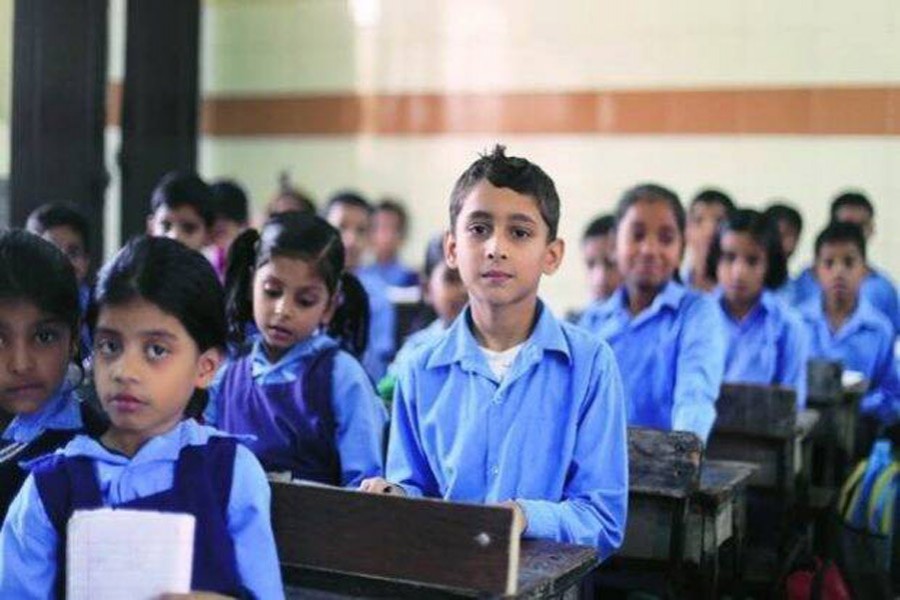
Published :
Updated :

Notwithstanding an impressive improvement in literacy, higher girls' enrolment and lower school dropout rates in the last 50 years, the overall education scene in Bangladesh is still dismal on many counts. The main drawback of the system is that it cares little about whether children and youth are receiving proper knowledge to become good human beings. Gone are the days especially in the '70s and '80s when the main challenge was to enhance the school enrolment rate. In the '90s, the challenge shifted to containing the dropout rate. With gradual economic advancement, public and private investment in education has also increased. It has opened a window of opportunity for an increasing number of people to avail of formal education.
Nevertheless, instead of focusing on humanisation of education, school-based education to be precise, there is a growing focus on academic achievement through hard but faulty appraisal measures. In this process, the policymakers have ultimately pushed students on to the edge for achieving higher scores at any cost. That's why private tuition and coaching have become indispensable for students before and after long hours in school. Most of the students in schools have little time to play and extra-curricular activities. Their learning becomes unpleasant.
Everyone needs some literacy skills as well as intellectual training. They also need to develop the ability to think, reflect and reason orderly. Without developing the ability, the acquired literacy and intellect will not be meaningful. School is the primary institution to develop the ability. Scoring high on their tests based on memorised knowledge should not be the ultimate goal of education in school. It also should not aim to produce so-called good boys and girls who will not question anything but follow the set of instructions like robots.
Developing an inquisitive mind to ask question and seek reason for anything is necessary for acquiring knowledge. It also helps to understand complex things. The current school curriculum and mode of teaching largely ignore or bypass the critical thing. Lack of human-centric approach also makes it difficult for children to be an active member of the learning process. The largely one-way communication discourages them to actively participate in the process. Teachers also don't feel the necessity or like to engage students in the learning process. In many cases, they are also discouraged to do so.
Policymakers in the education sector are aware of the fact that a human-centric approach allows children to be active participants in knowledge transmission and transformation. The approach also underscores guidance and encouragement with care and admiration to acquire knowledge and virtue. Thus, policymakers need to thoroughly revise the current mode of teaching so that both teachers and students in schools can engage themselves in a meaningful and effective interaction in the learning process. Children need to enjoy what they are reading and writing. The contents they are going through for learning and tests have to be relevant with the real world and meaningful. Finally, children have every right to access flexible learning spaces so that they can comfortably interact with one another.
The challenge after the 50 years of independence is thus to put some serious effort in education, especially in school education, to make it human-centric. Without making the process of imparting and learning lessons in school joyful, it is not possible to give education a human-centric shape.
asjadulk@gmail.com


 For all latest news, follow The Financial Express Google News channel.
For all latest news, follow The Financial Express Google News channel.